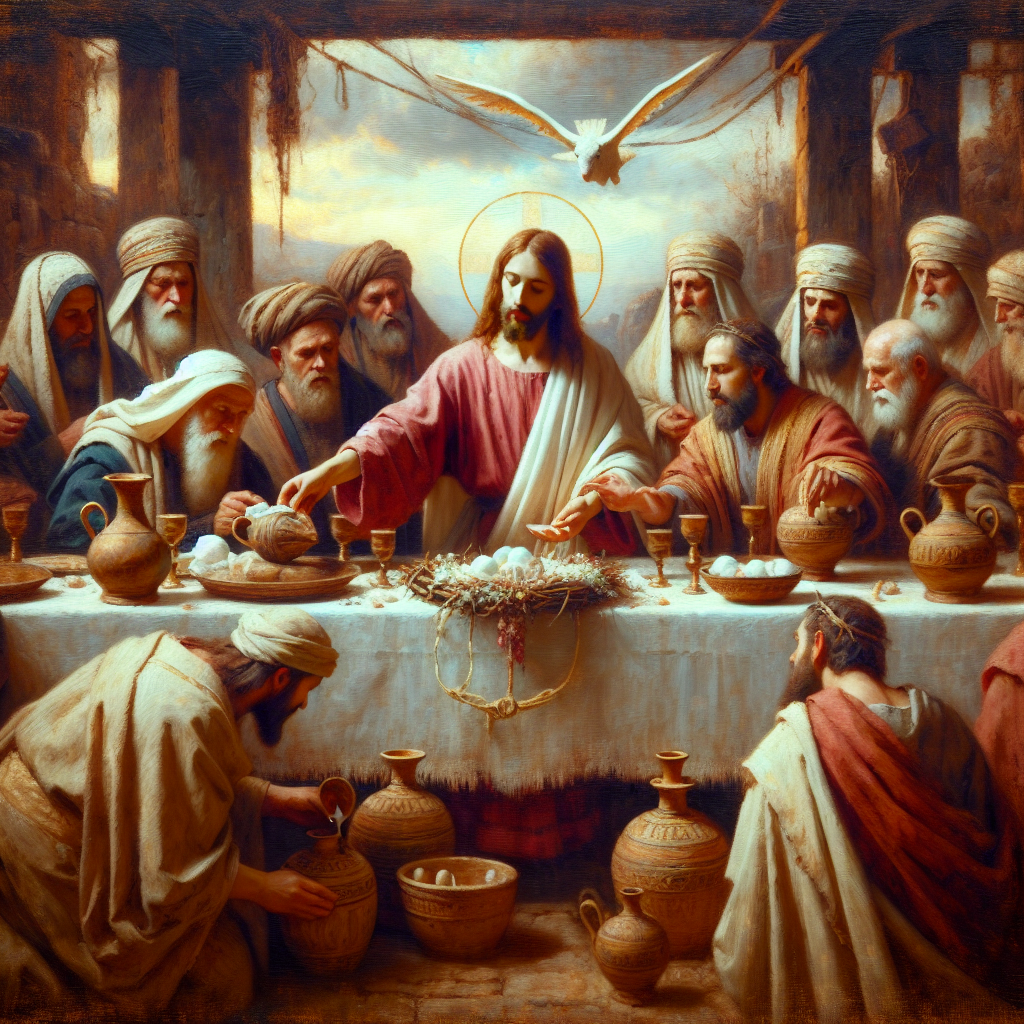Matthew 26: Jesus Institutes the Lord's Supper
15/08/2024

Matthew 26
Link to bible verses
Key Verses
- Matthew 26:26-28: "While they were eating, Jesus took bread, and when he had given thanks, he broke it and gave it to his disciples, saying, 'Take and eat; this is my body.' Then he took a cup, and when he had given thanks, he gave it to them, saying, 'Drink from it, all of you. This cup is the new covenant in my blood, which is shed for you.'" (NIV)
Themes
- The Institution of the Lord's Supper: This chapter introduces the Lord's Supper, where Jesus uses bread and wine to symbolize his body and blood, representing the new covenant and the forgiveness of sins.
- Betrayal and Suffering: Jesus predicts his betrayal by Judas and his crucifixion, emphasizing the foreknowledge and acceptance of his sacrificial role for humanity's redemption.
Historical Context
- Time Period: The events occur during the final days of Jesus' life, leading up to his arrest and crucifixion.
- Political Climate: The Roman occupation of Judea and the growing tension between Jesus and the Jewish religious leaders form the backdrop of these events.
- Significant Events: Key events include the plot to kill Jesus, the anointing at Bethany, the Last Supper, and Jesus' prayer in Gethsemane.
Cultural Context
- Passover Celebration: The chapter is set during Passover, a significant Jewish festival commemorating the Exodus from Egypt. Jesus uses this context to institute the Lord's Supper, drawing parallels between the Passover lamb and his own impending sacrifice.
- Jewish Leadership: The chapter highlights the Jewish leaders' opposition to Jesus, reflecting the cultural and religious tensions of the time.
Etymology
- Greek Terms: The Greek term "covenant" (διαθήκη, diathēkē) is crucial, signifying a new agreement between God and humanity through Jesus' sacrifice.
- Hebrew Terms: The Hebrew term "Passover" (פֶּסַח, pesach) underscores the connection between Jesus' sacrifice and the original Passover in the Old Testament.
Put it into Practice
- Reflection on Sacrifice: Reflect on the significance of Jesus' sacrifice and its implications for personal faith and life.
- The Lord's Supper: Regular participation in the Lord's Supper can serve as a reminder of Jesus' sacrifice and its importance in one's spiritual journey.
- Handling Betrayal: Consider how Jesus dealt with betrayal and apply similar principles of forgiveness and understanding in personal relationships.
Questions
- How does Jesus' sacrifice shape your understanding of God's love and forgiveness?
- In what ways can you incorporate the principles of the Lord's Supper into your daily interactions and relationships?
- How do you respond to betrayal or disappointment, and what lessons can be drawn from Jesus' example in Matthew 26?
